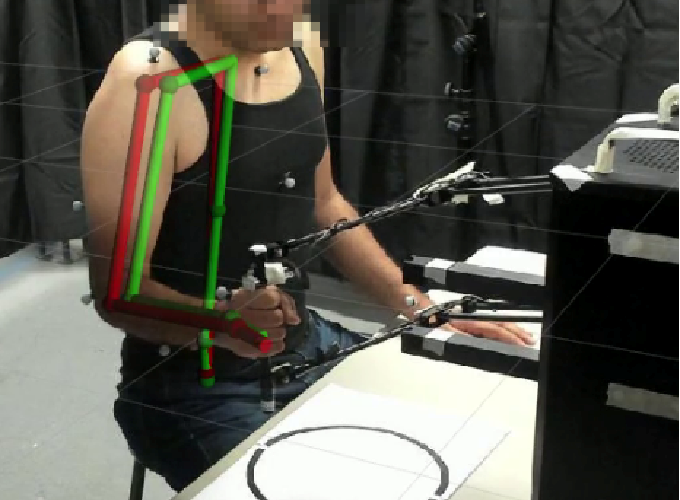Is The Leader Robot an Adequate Sensor for Posture Estimation and Ergonomic Assessment of A Human Teleoperator?
Abstract
Ergonomic analysis of human posture plays a vital role in understanding long-term, work-related safety and health. Current analysis is often hindered due to difficulties in estimating human posture. We introduce a new approach to the problem of human posture estimation for teleoperation tasks which relies solely on a haptic-input device for generating observations. We model the human upper body using a redundant, partially observable dynamical system. This allows us to naturally formulate the estimation problem as probabilistic inference and solve the inference problem using a standard particle filter. We show that our approach accurately estimates the posture of different human users without knowing their specific segment lengths. We evaluate our posture estimation approach from a haptic-input device by comparing it with the human posture estimates from a commercial motion capture system. Our results show that the proposed algorithm successfully estimates human posture based only on the trajectory of the haptic-input device stylus. We additionally show that ergonomic risk estimates derived from our posture estimation approach are comparable to those estimates from gold-standard, motion-capture based pose estimates.
